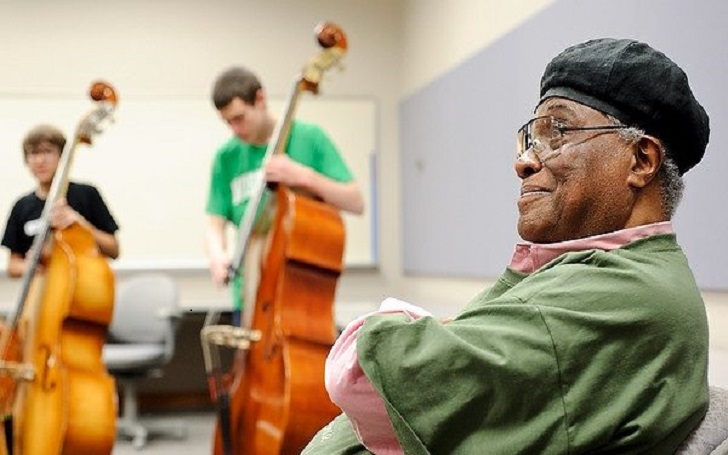
Richard Davis presiding over a bass camp for young musicians.
As a bassist, Richard Davis was the essence of eloquence. Whether playing pizzicato or arco, few could match his way of choosing just the right notes, of leaving just enough space for a soloist to breathe in, or of pushing the edge of careening freedom with a dramatic sense of momentum, song, and swing.
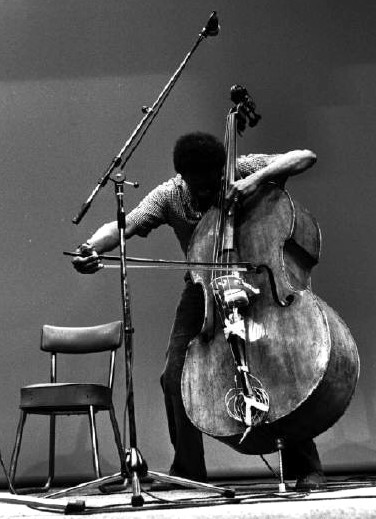
Richard DAVIS (bass, electric bass) – USA.
Paris IV. Centre Georges Pompidou.
And so, the wide world of jazz, and of classical music, lost a great voice in his passing on September 6, at age 93.
He was an extraordinarily gracious man, yet he had a prodigious strength of backbone and character, which only grew more impressive in advancing years.
His vast experience and wisdom could play a leading role in advancing racial relations.
This doubtlessly drew from the great respect he possessed from musicians of all races.
Yet he knew how difficult and ongoing the struggle for racial equality and justice would be. Perhaps he was a type of shaman in the modern world, as what he was striving for was what he called “racial healing.” which he dedicated his later years to. He formed a Madison branch of the Institute for Racial Healing, a national grassroots organization that deals with race problems through workshops, group support and activism.
At a 2015 panel discussion, he said America needs to focus less on making reparations for racial injustices of the past and focus on atoning for the injustices of the present, in particular the criminal justice system, Rob Thomas reported for The Capital Times.
“Why not start with the new slaves — the prisoners?” Davis asked. “We are guilty of having the most of them. We are the most racist state in the country” in terms of percentage of African-American men who are incarcerated. “Don’t you want to cringe a little bit — that we are the most racist state in the country? On Wisconsin!”
He was an extremely popular professor known for richly anecdotal lectures on music and his experiences working with great jazz musicians, including Sarah Vaughan, Eric Dolphy, Miles Davis, John Lewis, and Andrew Hill, and classical legends like Leonard Bernstein and Igor Stravinsky.
I heard and cherished his playing on numerous jazz albums, but I must admit he really first caught my attention with his melodious improvising on Van Morrison’s extraordinarily daring and poetic album Astral Weeks, in 1968. That session, which Davis confirmed, provided no charts or musical direction from Morrison, forced the musicians to completely wing it. The session helped earn Davis position number 34 in Rolling Stone’s poll “50 Greatest Bassists of All Time” which, as you’d imagine, is dominated by rock bassists, many of whom can draw no comparison to an artist like Davis. It was about him “conjuring impossibly poignant phrases to complement Morrison’s poetry on tracks like ‘Beside You.’ ” “For me, it was Richard all the way,” Astral Weeks producer Lewis Merenstein said, reflecting on the record 40 years later. “Richard was the soul of the album.”

Bass virtuoso Richard Davis at mid-career. Rolling Stone
You can search out his vast library of recordings but an easier way to hear him is a set of special memorial broadcasts honoring the life of Richard Davis, from WKCR-FM radio. The broadcast will preempt all regularly-scheduled Out to Lunch shows. That’s 11 a.m to 2 p.m. Central time. The closing two episodes are Thursday October 26th and Friday the 27th. WCKR is the Columbia University radio station in New York but it is streamable here: https://www.cc-seas.columbia.edu/wkcr/story/richard-davis-memorial-broadcast-0#
Here’s a brief biography on Davis, courtesy of WKCR:
Davis played a pivotal role as a bassist on iconic Blue Note records with artists like Andrew Hill, Bobby Hutcherson, Joe Henderson, and Eric Dolphy. WKCR honors Davis by preempting all Out to Lunch slots this week, for his collaboration with Eric Dolphy that led to his groundbreaking 1964 album Out to Lunch!
Born in Chicago, Davis hailed from a family with musical roots. His early education in double bass took place during high school, guided by the music educator Walter Dyett. Under Dyett’s mentorship, Davis honed his abilities, traversing the realms of classical compositions and the burgeoning world of jazz improvisation that was taking shape in the late 1940s.
After completing his studies at Chicago’s VanderCook College, Davis set his sights on New York City. In 1954, in his early twenties, he made the pivotal move to the Big Apple, marking the next significant chapter in his musical journey.
During his time in New York, Davis established himself as a highly sought-after double bassist, showcasing his versatility and adaptability as he collaborated with a wide range of musicians and played at renowned jazz clubs across the city. His ability to seamlessly blend his classical training with the evolving improvisational styles of jazz earned him a reputation as a unique and versatile talent in the music world. As the 1950s transitioned into the 1960s, Davis’s contributions to the jazz community continued to evolve, setting the stage for a remarkable career that has left an indelible mark on the world of music.
***
Here’s a review I wrote for The Capital Times of a masterful later-period Richard Davis album, The Bassist: Homage to Diversity, from 2001.
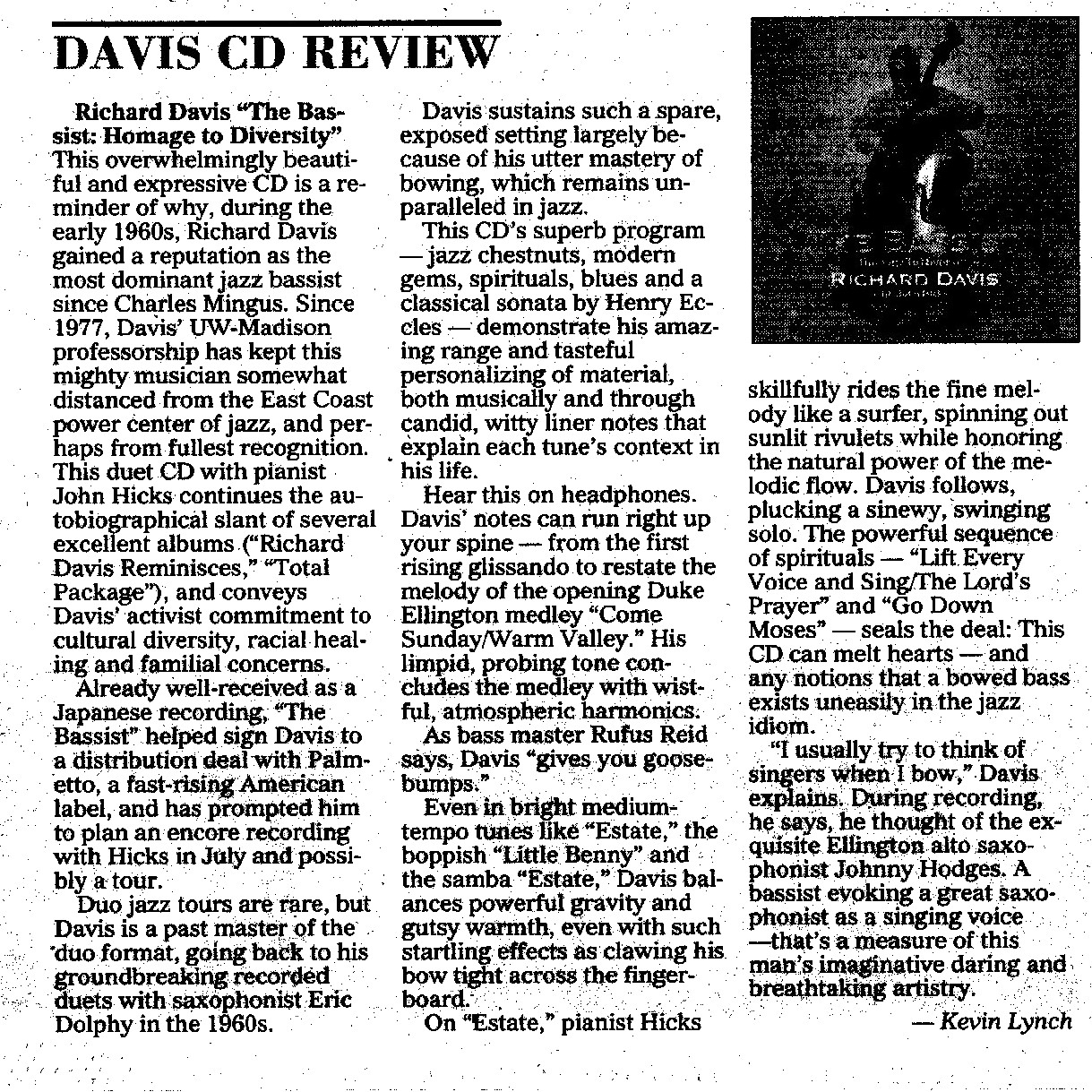
***
I also had the honor and pleasure to visit Davis for an interview for The Milwaukee Journal‘s Sunday Wisconsin magazine in 1984. It is memorable, aside from the brilliance Davis brought to the interview, by the uncanny nature of the very day I visited him in his horse farm outside of Barneveld, Wisconsin.
After the interview, I drove through the small town of Barneveld and headed back east. Soon I was engulfed in a very powerful rainstorm and, before long, my tin-can of a car, a Ford Fiesta, broke down on the highway. By then, the storm had become quite violent, and I was lucky to get my car to a garage for repair.
I made it home and it wasn’t until the next morning when I arrived at The Journal newsroom that I saw the headline. A tremendous tornado had devastated the town of Barneveld the night before.
I was able to calculate that I missed the tornado by no more than 20 to 30 minutes. My article incorporates the experience of the tornado, so I will proceed no further. I hope you enjoy this very special moment in time for myself and Richard Davis.
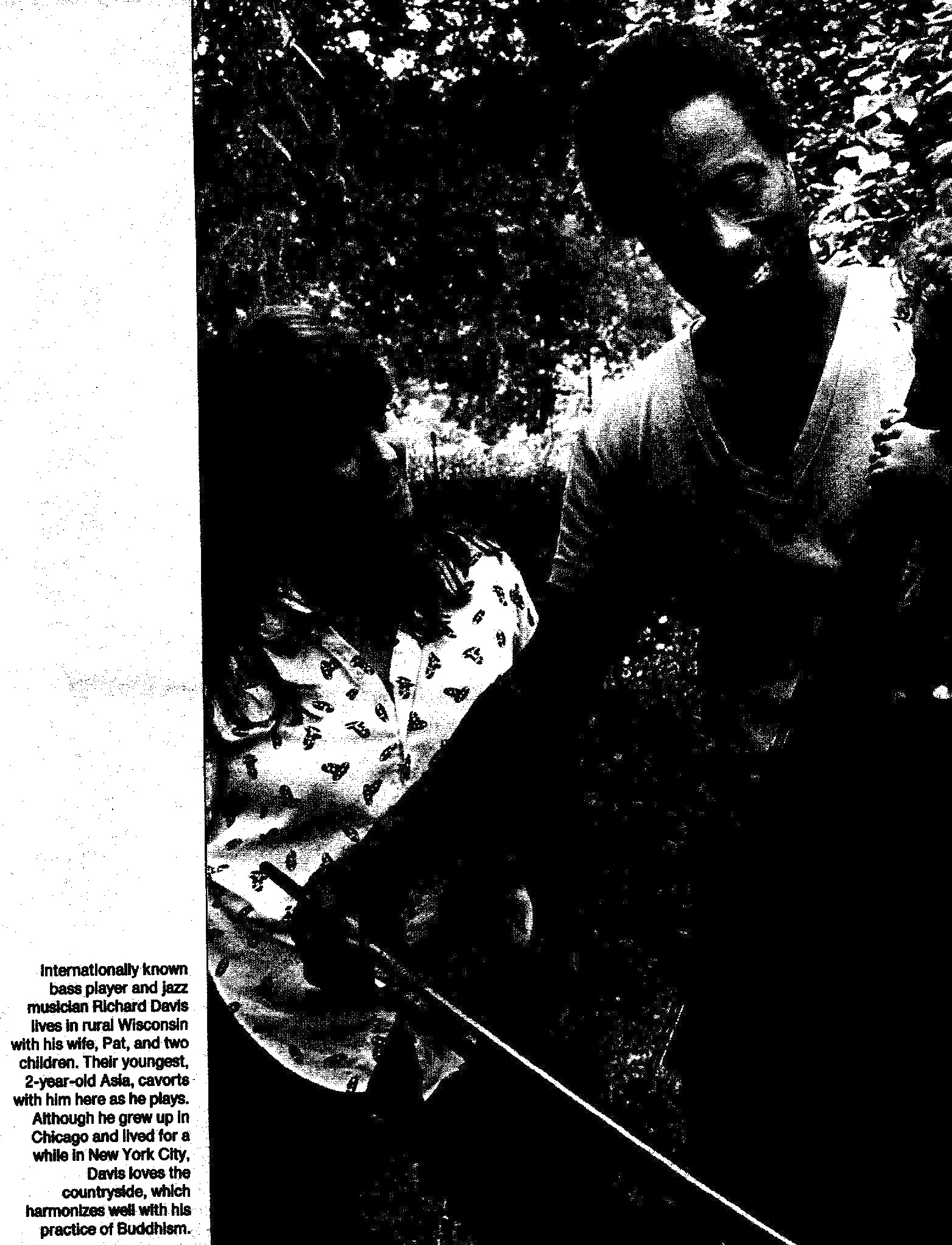
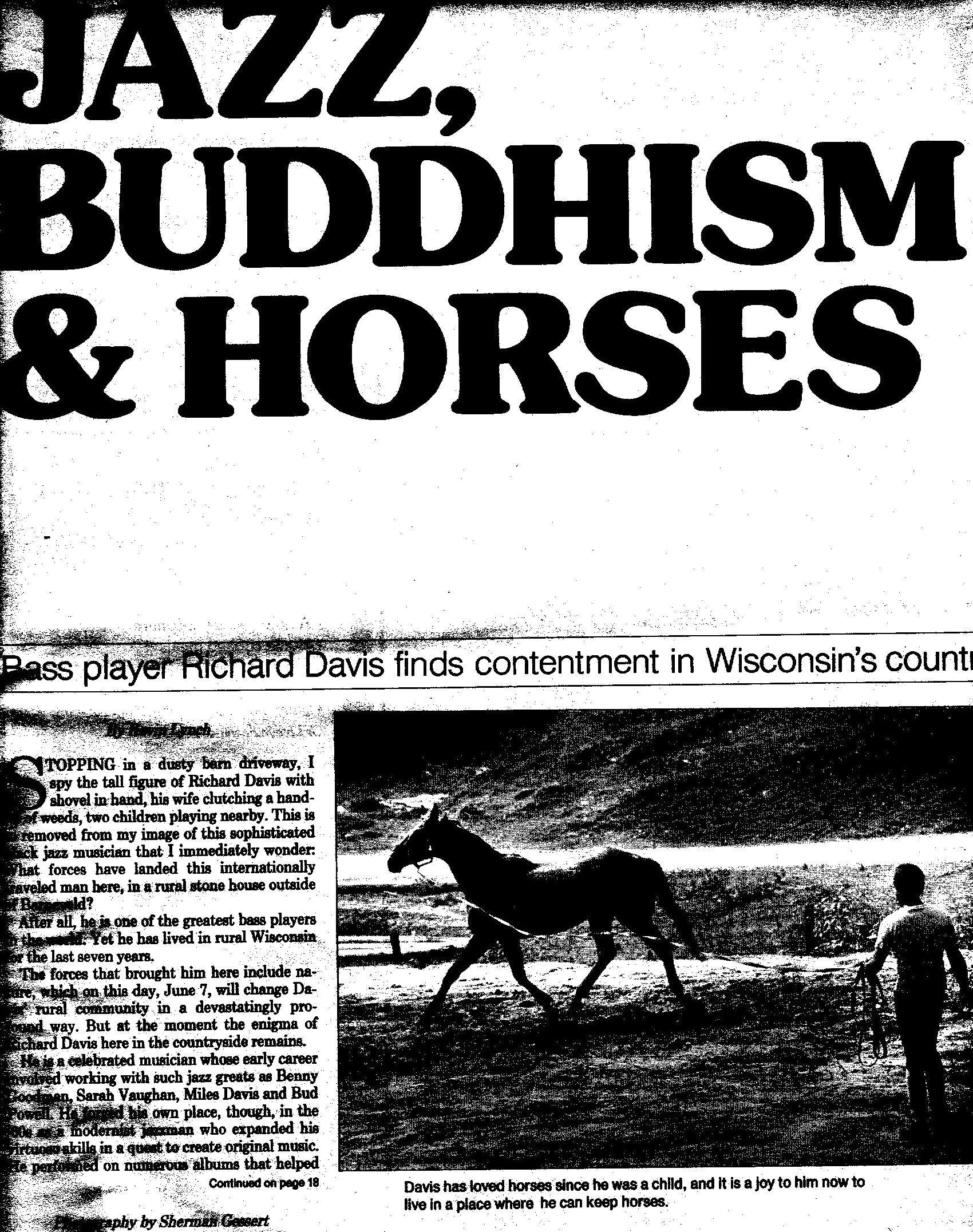
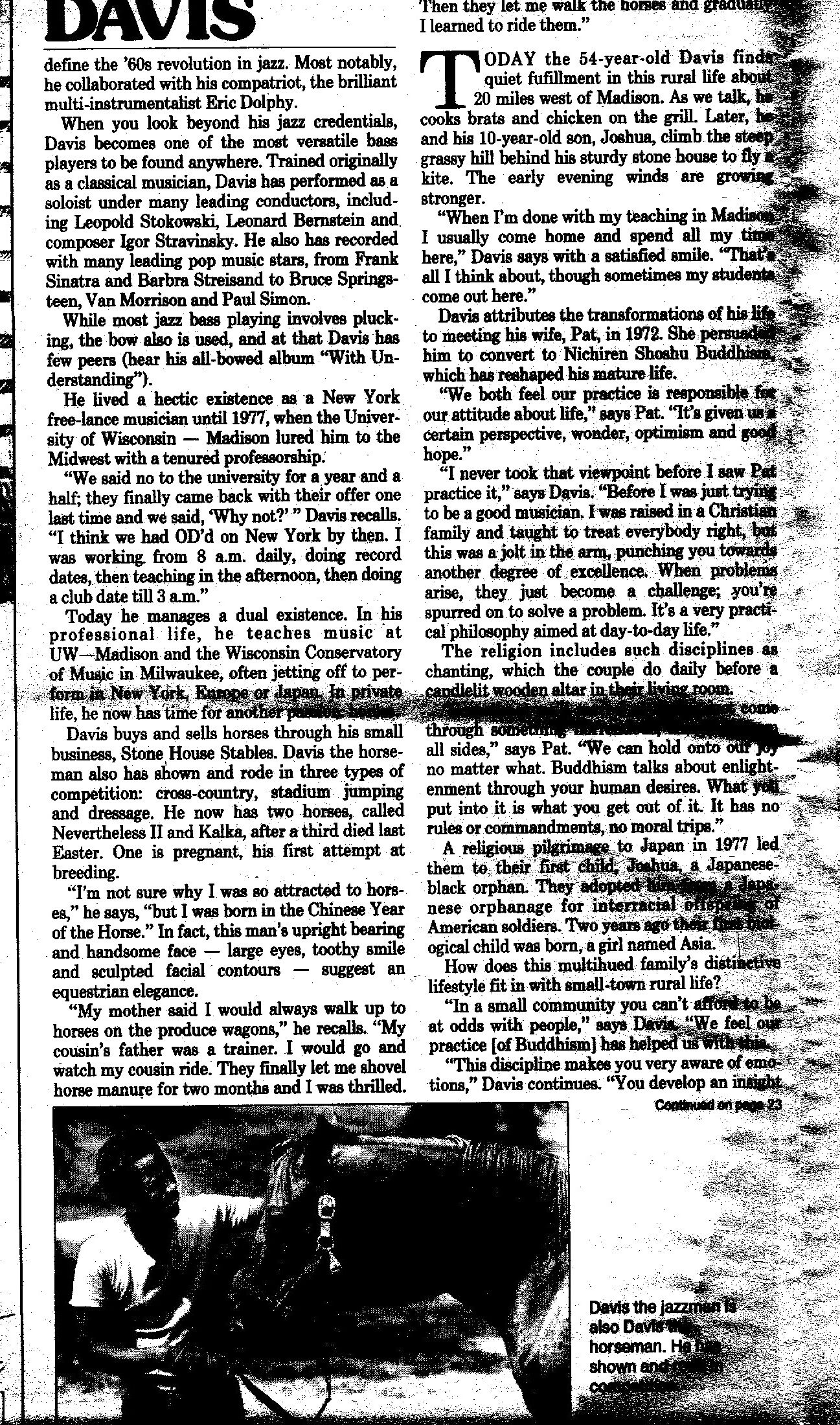
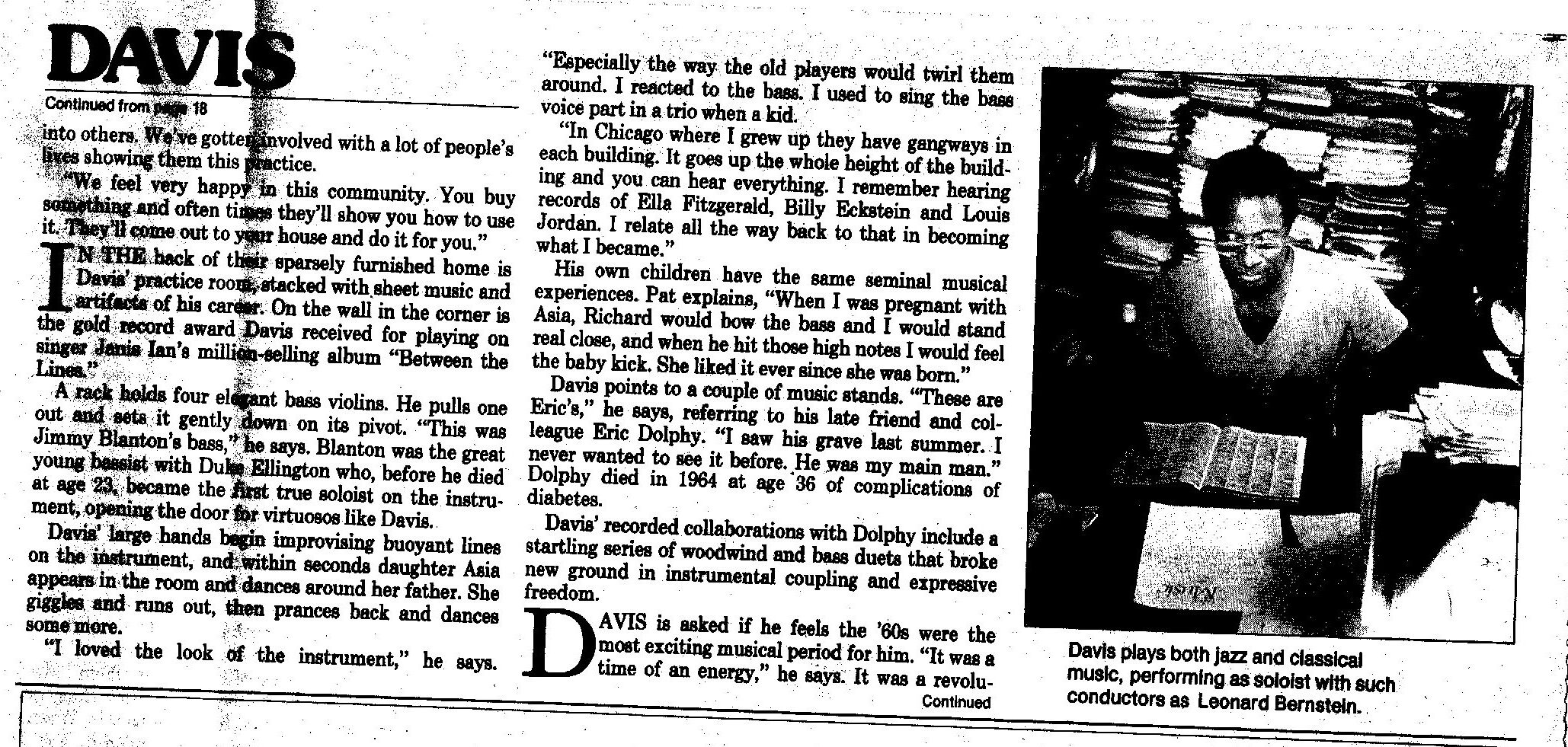
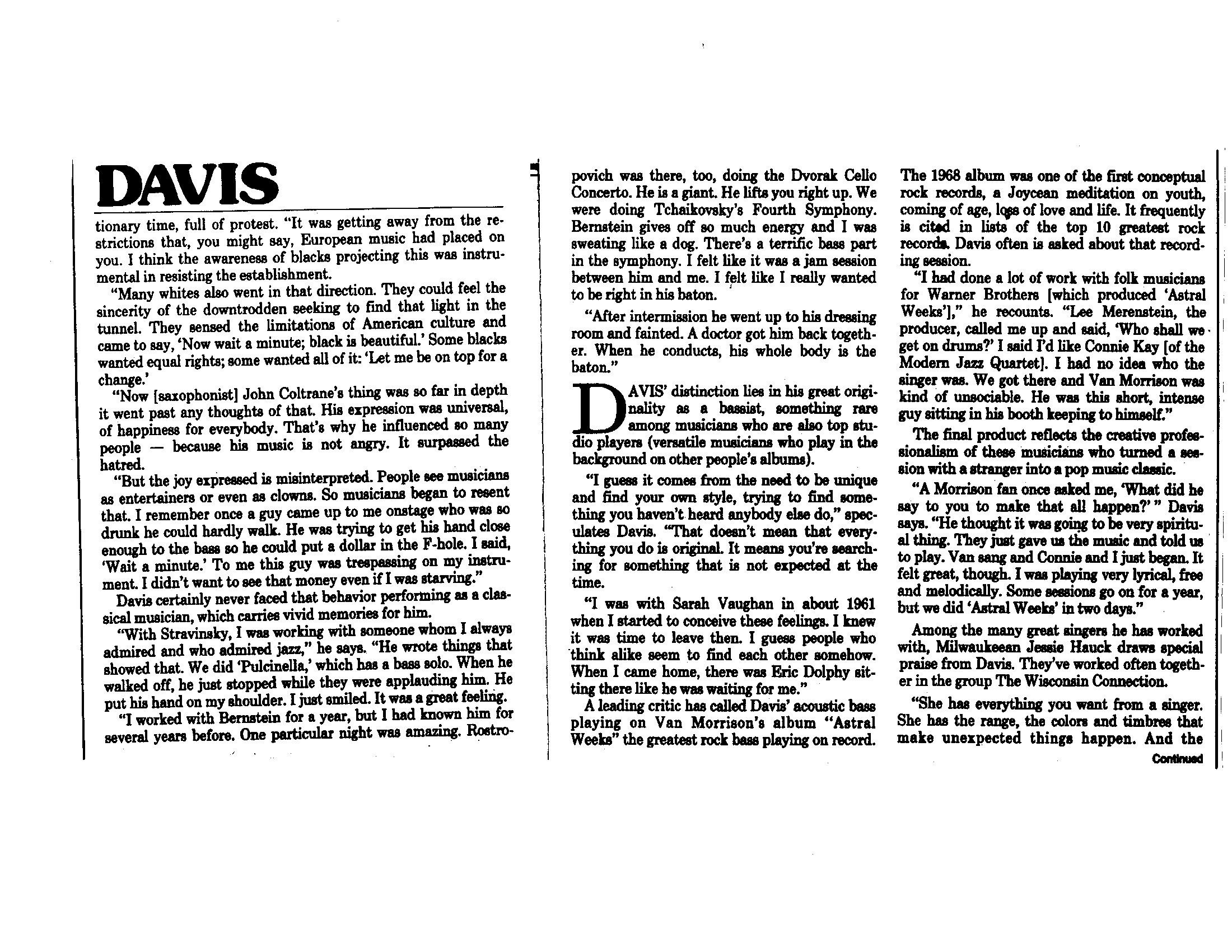
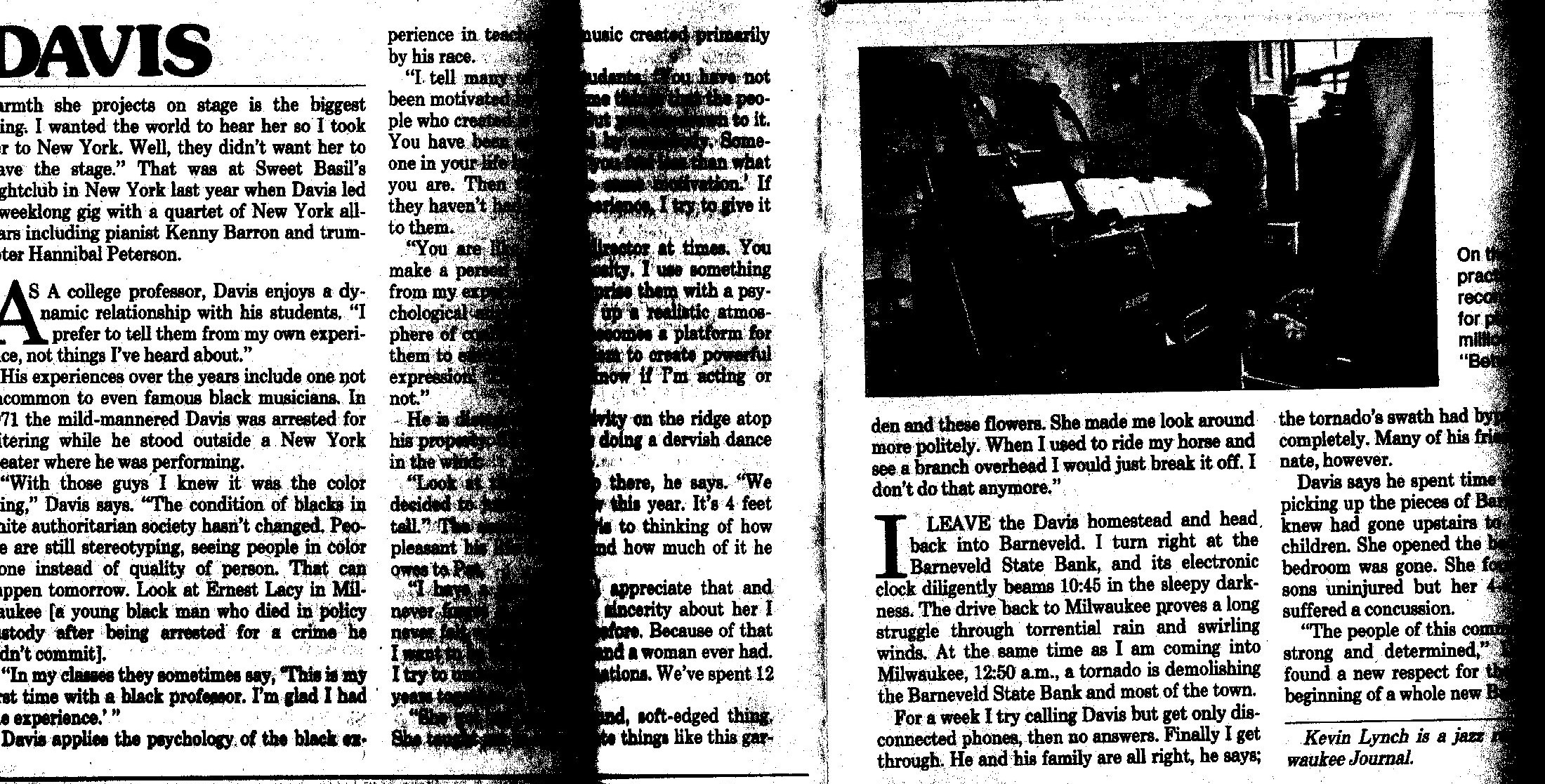
______________

